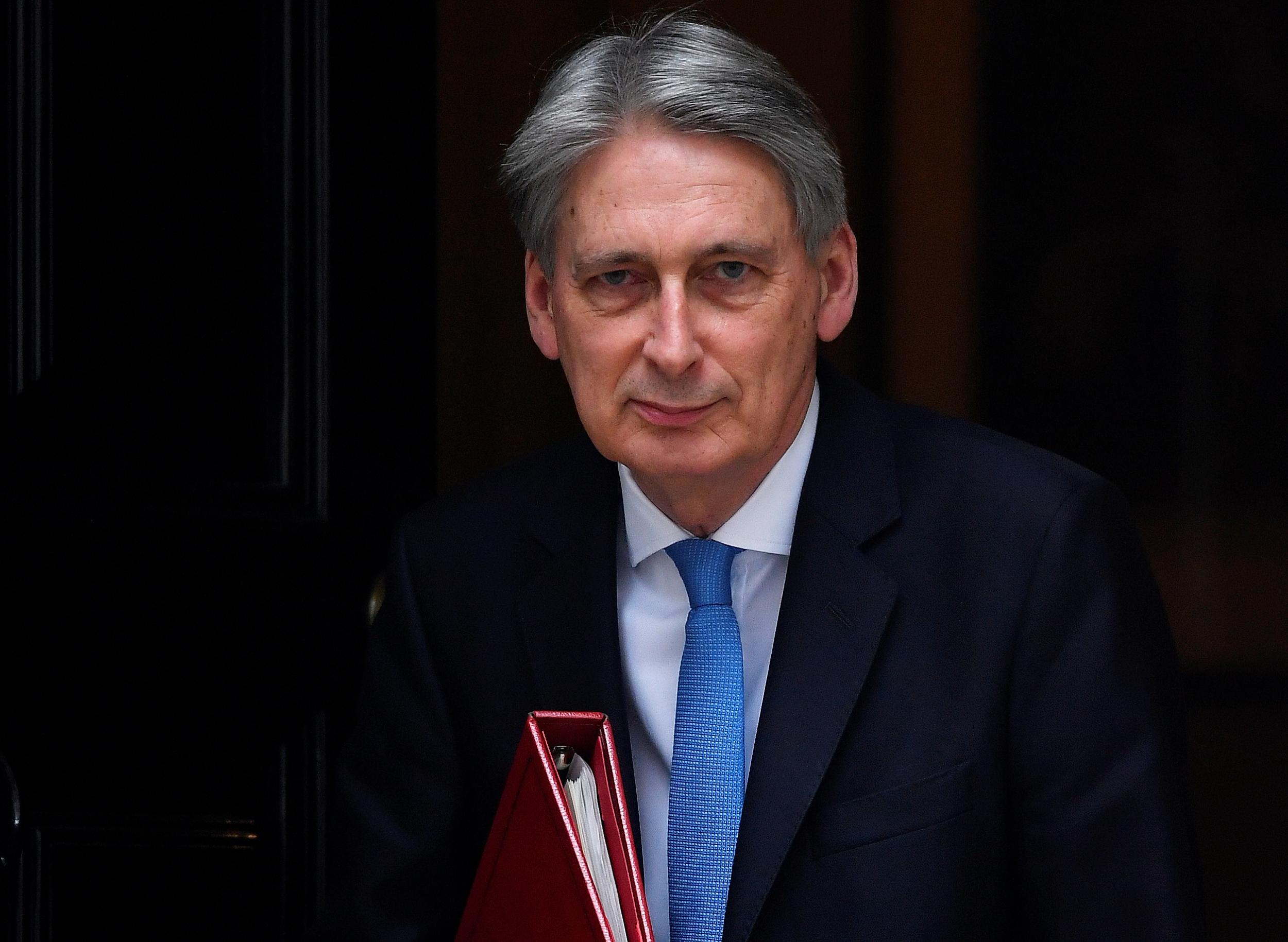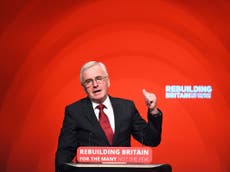Philip Hammond is ready to ‘end austerity’ – but only if Theresa May agrees to his Brexit deal
All of this shall be yours, the chancellor will say, but on one condition


Philip Hammond was almost as pleased – and surprised – by the result of the last election as Jeremy Corbyn. If Theresa May had increased her majority, the chancellor would have been for the chop.
He hadn’t been allowed much of a role in the Conservative election campaign because his relations with the prime minister were so poor. This was one of the reasons Labour’s spending plans received so little scrutiny. But on 8 June last year he struck lucky. He kept his job. He and May started to work better together, and now he is one of the most powerful cabinet supporters of her approach to leaving the EU.
This week, lucky Phil struck lucky again. As the Treasury started finalising the Budget he will announce at 3.30pm on Monday, it received the forecast of tax and public spending from the independent Office for Budget Responsibility. It turned out that a number of recent errors had all been in one direction and, when corrected, the chancellor had £13bn a year more than he thought.
At a stroke, his immediate problems were solved. As the Financial Times commented, he “will have no problem in funding the NHS spending pledge”. Not only that but he has enough to buy off all the other crises of squeezed public spending. He can find money for social care for old people, which is adding pressure on the NHS; to limit the disaster of the universal credit roll-out; and to try to build more houses in public and private sectors.
He can do it all without raising taxes, despite having warned people they may have to contribute a bit more. No doubt taxes on alcohol, sugar and single-use plastics will go up, but everyone is happy to pay more for them – aren’t they? – and Hammond will announce that austerity is indeed over.
This is just as well because it is difficult to put up general taxes in a hung parliament. It takes only seven Tory MPs to vote against and a tax rise ceases to have a majority in the House of Commons.
Which makes Jeremy Corbyn’s job harder than usual. By tradition, the leader of the opposition, rather than the shadow chancellor, responds to the Budget. He tried to prepare the ground this week by asking at Prime Minister’s Questions when austerity would end for local councils, the police, nurses and universal credit claimants. To which the answer was: Monday.
When Hammond announces more money for all these groups, Corbyn will have to say: it’s not enough. Which is sort of true, because governments can always spend more, but Labour’s attack won’t have as much sting as it did at the election.
In any case, this Budget will be overshadowed by Brexit. Theresa May is usually accused of having no plan longer than surviving to the middle of next week, but now she has something you might even call a strategy, and the Budget is a key part of it.
Hammond will announce the milk and honey taps are about to be turned on, but on one condition: that parliament votes for the withdrawal agreement with the EU that May is now confident of securing. All of this shall be yours, the chancellor will say, but only if you vote for the deal. The uninspiring phrase, “the deal dividend”, might even cross his lips.
If May does negotiate a deal, and if parliament approves it – the first is a bigger “if” than the second – it would be a remarkable tribute to her resilience. Much of her cabinet has been doubtful about her – or her chief Brexit civil servant Olly Robbins’s – plan all year, long before it was called “Chequers”, and long after that name was dropped. Yet it is now close to being the basis of a deal, while the alternatives have not got off the ground.
Boris Johnson and David Davis are still trying to push a Canada-style deal but they know it doesn’t keep the Irish border open unless Northern Ireland is separated from the rest of the UK, so they are arguing in effect to leave without a deal.
The late compromise, proposed by Nick Boles, a supporter of Michael Gove, of temporary Norway-style status, dubbed “Norway for now”, is simply a version of what May is trying to negotiate – namely a long transition period in which nothing much changes, followed by a relationship that hasn’t been fully decided yet.
If she gets her deal, puts it through parliament and we leave the EU on 29 March, she ought to be praised to the skies, but, as with Budgets, no one will be grateful.
Politics will move straight on to the next thing, which will probably be May’s post-Brexit reshuffle. Will that be when Hammond’s luck runs out? I wouldn’t be so sure.


Join our commenting forum
Join thought-provoking conversations, follow other Independent readers and see their replies